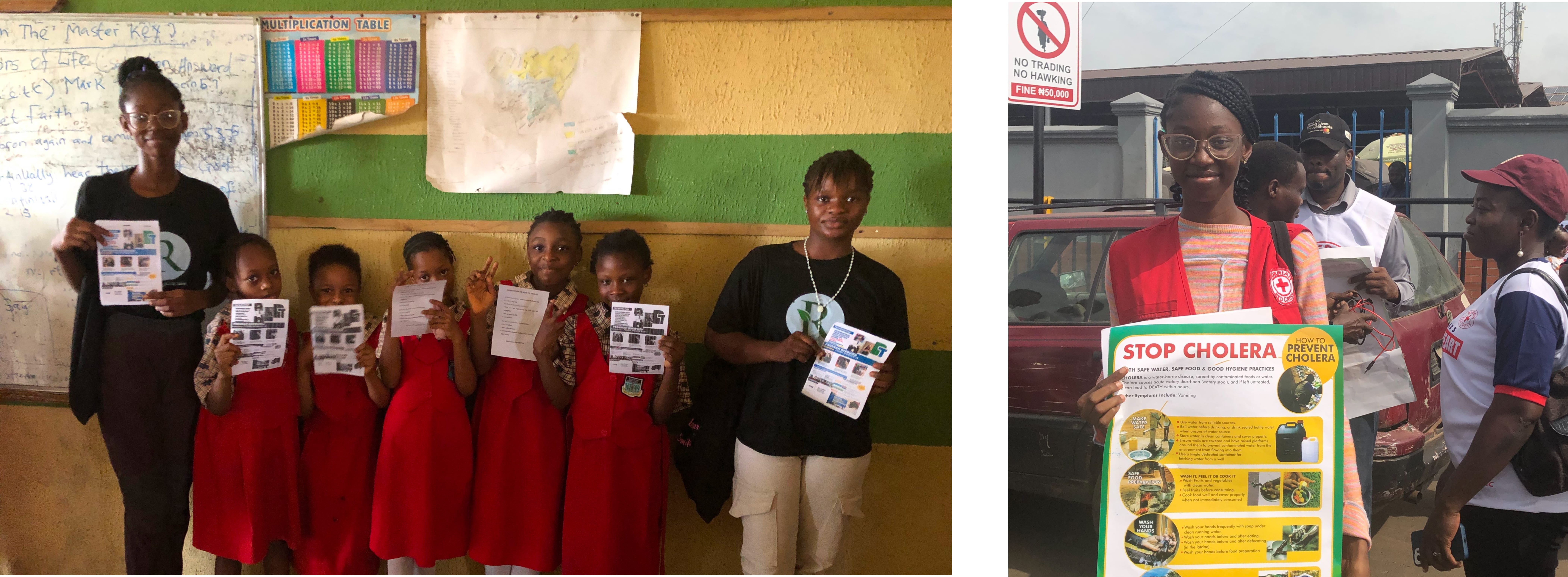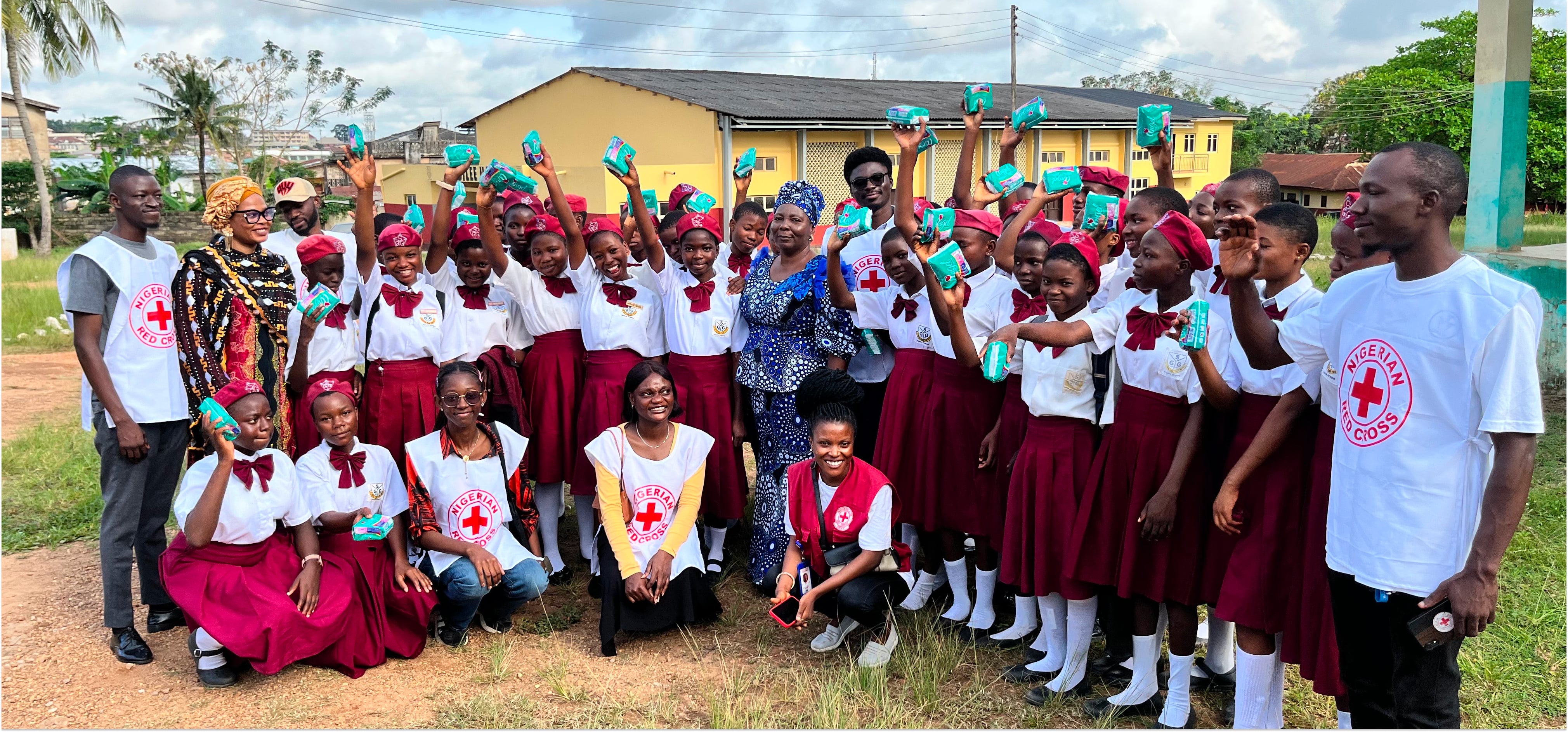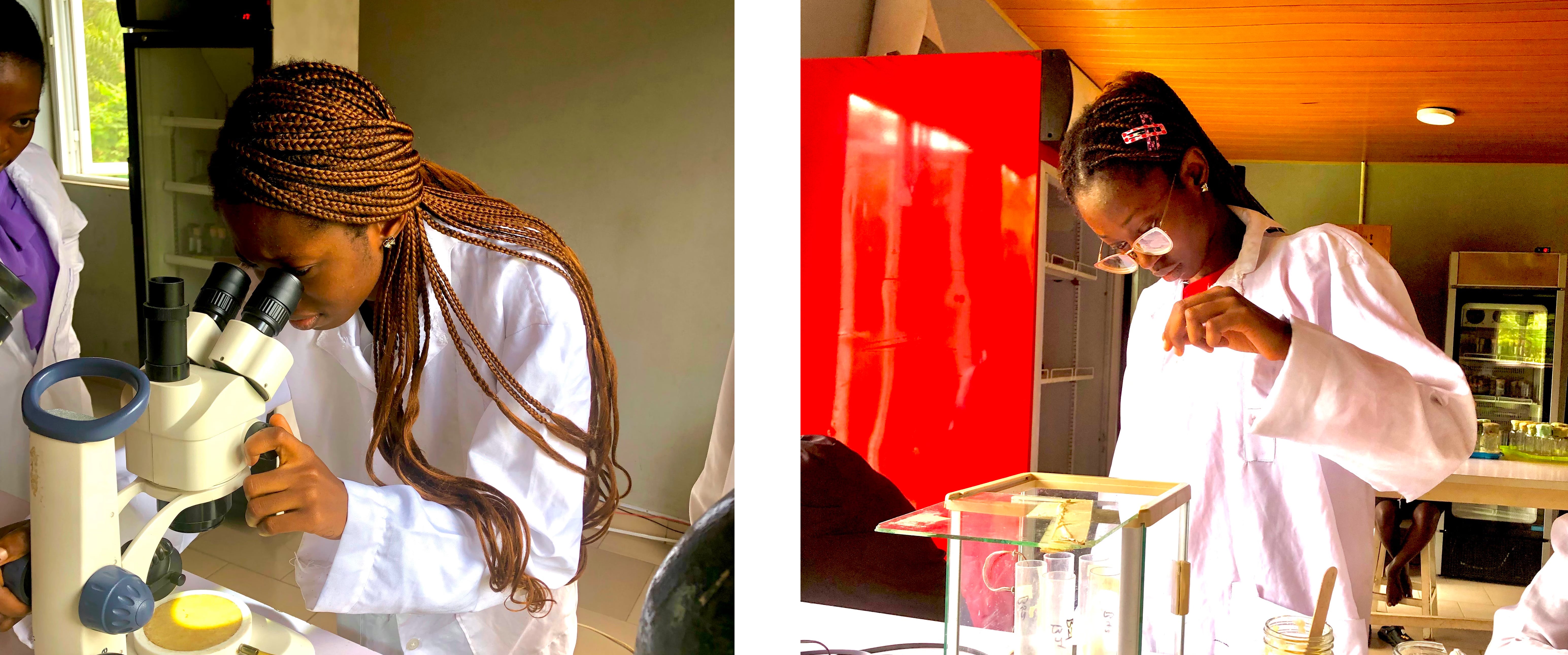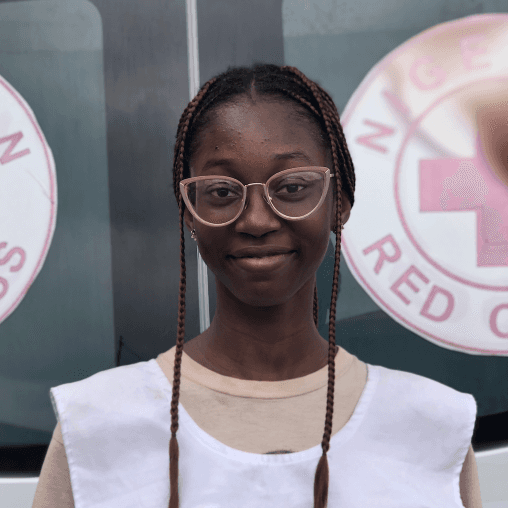Precious Ojo
Coming from Nigeria, the fellowship gave me a rare opportunity to connect with mentors from top universities, like Harvard, Stanford, and MIT. The fireside chats, especially those focused on medicine, ignited my passion for research and provided awesome resources, like cold email templates, which led to my current research internship at the University of Ibadan. The career panel answered a lot of questions that confused me, and the weekly reflections and deliverables helped me process everything I learned. The mentors’ genuine support during office hours, personalized feedback, and inclusivity made it a fun, and inspiring experience. I’m proud to say I am no longer the person I was before the program; the fellowship has motivated me to see STEM in a whole new light and pursue it with newfound focus and drive.
Precious Ojo is a high school student from Nigeria with a passion for biology, public health, and biomedical research. Her journey in STEM began at the age of nine after reading Think Big and Gifted Hands by Ben Carson, which inspired her to pursue a career in medicine. Precious is particularly drawn to biology, especially fields like human biology, microbiology, and genetics, as well as the practical applications of these sciences in addressing global health challenges.
Precious is deeply committed to community impact and co-founded Young Nigerian Changemakers, an initiative that educates youth about the UN's Sustainable Development Goals. Precious also launched AMR Unmasked, a campaign raising awareness about antimicrobial resistance. After the fellowship, Precious was inspired to begin conducting research, and she now interns at the Drosophila Research Laboratory at the University of Ibadan, conducting toxicology and biomedical research with Drosophila flies. Read on to learn more about Precious, her inspiring journey, and her impactful work!
Meet Precious
How did you initially become interested in STEM?
My interest in STEM began when I was about nine years old, after reading Think Big and Gifted Hands by Ben Carson. His story about overcoming challenges to become a doctor really inspired me. After reading the book, I became determined to pursue a career in medicine. The way he described his journey to becoming a medical doctor, despite the struggles with his family and circumstances, made me think, "Yes, this is what I want to do!"
Along the way, I tried other activities like playing sports, doing ballet, and even participating in theater, but none of those felt as fulfilling as my science classes. I loved chemistry labs and found my biology classes really engaging. Over time, I realized that I was more passionate about science than anything else, and that’s when my interest in STEM really solidified.
Can you tell us more about the STEM subjects you’re interested in?
My favorite STEM subject is definitely biology. It’s a field where there’s so much to learn, but also so much to discover. Every biology class excites me, and it always leaves me looking forward to the next one. The more I learn, the more fascinated I become by how the world of biology works. I’m particularly interested in human biology, microbiology, and genetics. These subjects are all incredibly exciting, and I look forward to exploring them further.
I also really enjoy math. While biology feeds my curiosity and learning, math is more fun for me. My math teacher is very energetic, and that makes the classes even more enjoyable. Together, biology and math are my two favorite STEM subjects.
What extracurriculars are you involved in?
I’ve been involved in Red Cross since COVID, attending training camps and serving as the commandant of my school’s Red Cross Club. We focus on fundraising and visiting places like orphanages and homes for children with autism. In addition, I’m part of the Olympiad Club, competing in math and biology Olympiads, and I was part of my school’s press team, The Spectacles. Outside of school, I co-founded Young Nigerian Changemakers, which empowers young Nigerians through education on the 17 Sustainable Development Goals. I also started AMR Unmasked, a campaign to raise awareness about antimicrobial resistance.

Currently, I’m interning at the Drosophila Research Laboratory at the University of Ibadan, where I work on toxicology research using Drosophila flies as a model. We’re studying the effects of toxicants like benzene and naphthalene, as well as researching cancer and Alzheimer’s. I assist with lab work such as RNA/DNA extraction and PCR.
I got this research opportunity because of the fellowship! A mentor, Kayla, encouraged me to cold-email local university labs, and another mentor also shared email templates, which I used. I reached out to the professor of the Drosophila lab, and he invited me for an interview. He said he’d never had someone with just a high school degree apply for a research internship, but he was really impressed by my initiative and passion!
Summer Experience
What was your favorite part about the fellowship?
My favorite part of the fellowship was definitely the actionables and deliverables. I really enjoyed reflecting on everything I learned each week, and it was a great exercise that helped me consolidate the insights from the talks and chats, rather than just attending the sessions and forgetting what I learned. It encouraged me to think deeply about each experience.
Another highlight was the office hours. They felt personal, and the one-on-one conversations with the mentors were very special. It was my first time having this kind of opportunity, and I really enjoyed it. My favorite office hour was with Kayla. She was so kind, and we had an in-depth conversation about the college application process, universities, and my interest in public health. She also discussed career opportunities in public health and research related to water and environmental sustainability. Kayla shared her experiences working in India, which was incredibly inspiring. I truly appreciated our conversation.
What was your favorite deliverable from the summer?
My favorite would have to be Isabella’s deliverable on finding your passion projects. It was one of the most inspiring parts of the fellowship. Her deliverable inspired me to come up with an idea for an organization called Flow with Confidence, which aims to address period poverty in Nigeria by providing reusable pads and menstrual health education for girls in underserved areas. Many girls don’t have access to proper sanitary products, and cultural stigmas prevent many girls from attending school during their periods. My initiative is designed to ensure every girl has access to hygienic products and education.

What was your favorite Fireside Chat?
My favorite Fireside Chat was Jiwoo’s session on computational biology. I’ve always loved biology, and at the time, I was also exploring coding and technology, so her talk on how biology intersects with computer science was fascinating. Her North Star analogy, which helped us understand how to find our niche, gather evidence, and connect with mentors, really resonated with me. It gave me a clear vision of potential career paths. I also enjoyed learning about her research on CRISPR-Cas9, and how it can be applied to real-world challenges like antimicrobial resistance. She also shared cold email templates, which were incredibly useful. This helped me find my research internship in Nigeria.
I also really enjoyed Isabella’s Fireside Chat, which emphasized the importance of networking. She shared that people are often eager to help younger individuals and encouraged us to create LinkedIn profiles and reach out to others. I took her advice and connected with many professionals, asking about their work and learning from their experiences. This process even helped me gain mentors I keep in touch with to this day.
What advice would you give to future participants of the fellowship?
I’d advise future participants to take full advantage of the office hours. It’s a unique opportunity to have one-on-one discussions with mentors and learn from their experiences. Even if you're unsure of what to ask, just showing up can lead to valuable conversations. Engaging actively in discussions is also key—don’t hesitate to participate, ask questions, and collaborate. The fellowship is very supportive, and everyone is willing to help. Lastly, stay curious and keep learning. There’s always more to explore beyond the sessions, so research further into what interests you, deepen your understanding, and continue the learning process.
Future Aspirations
What career are you hoping to pursue?
My goal is to become a doctor or research physician. In my undergraduate, I hope to study biomedical engineering and public health, and eventually, go to medical school. I’m not entirely sure what I want to do yet, but I’m leaning towards becoming a research physician, as I’m more interested in biomedical research than working in a hospital setting.
The fellowship really helped clarify my career path. During the career in medicine and biology talk, I learned about the MD-PhD program, which perfectly aligns with my goals. Before that, I was unsure how to combine my passion for research and medicine. I was at a crossroads, not knowing how to pursue both. But after learning about the MD-PhD program, I realized it’s possible to combine research and medicine in a way I hadn’t considered before. It reignited my passion for medicine and gave me a clear direction moving forward.
What have you been up to since the fellowship? Are there any new projects you’re excited about?
Since the fellowship, I’ve been working on an independent research project focused on antimicrobial resistance (AMR), specifically investigating the effects of traditional Nigerian medicine.
In Nigeria, there’s an issue with the misuse of drugs, including traditional medicine. Many people don’t take herbal medicine as seriously as modern medicine, even though it has antimicrobial properties. The misuse or overuse of these medicines can contribute to resistance. For example, people might stop using prescribed capsules early, and with herbal remedies, they often stop because they’re bitter or seen as less formal. This behavior can lead to AMR.
My research aims to understand how the use of traditional medicines in Nigeria contributes to antimicrobial resistance. AMR is a growing global health issue, and it’s important to examine how factors like traditional medicine play a role in its development and spread.

The Summit STEM Fellowship (SSF) is a virtual summer fellowship empowering the next generation of leaders in STEM. With alumni from over 30 countries, the fellowship has formed a vibrant, diverse network of future STEM leaders. To learn more, please visit the Fellowship Overview page. You can also find student spotlights on the Summit STEM Fellowship Newsletter. Subscribe to stay up to date with program announcements and new student spotlights!
Applications for the 2025 Summer Fellowship are now open. To apply, students must fill out a 2025 Summit STEM Fellowship Application. Admissions are rolling, and students are encouraged to apply as early as possible.

